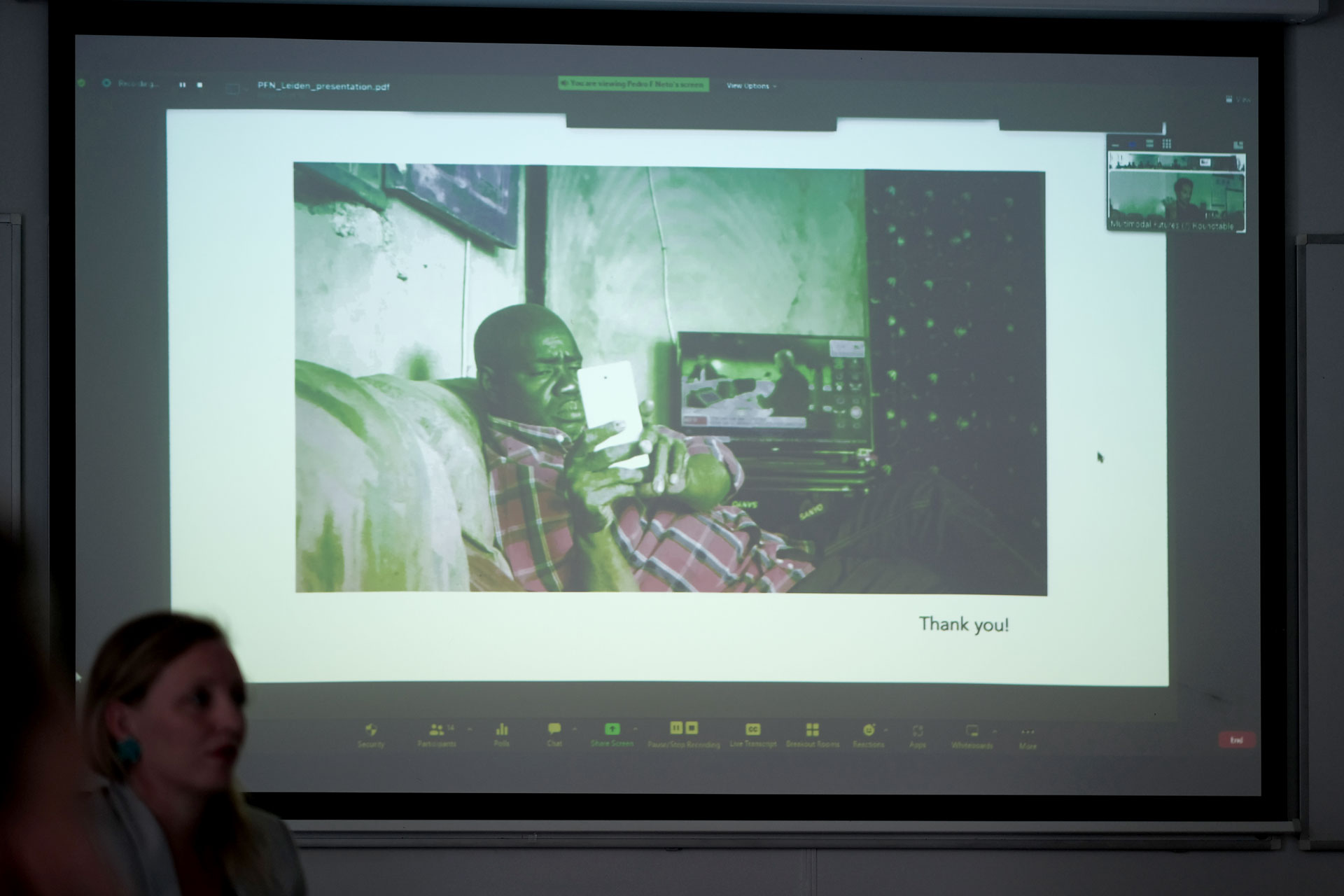
Leiden University, 5-6 October 2022
Intro
Studying scientific practices of knowledge production has increasingly turned towards collaborations and experimentations, simultaneously appreciating the multimodal possibilities of designing and disseminating research (Estalella and Criado 2018; Ballestero and Winthereik 2021), engaging differently with diverse types of publics and stimulating new forms of critique (Forlano and Smith 2018). In Science and Technology Studies (STS) this turn to creative and participatory ways of doing ethnography has found strong resonances and renewed alliances in other adjacent fields, specifically in audio-visual and multimodal anthropology (Nolas and Varvantakis 2018; Westmoreland 2022). Inspired by these initiatives and drawing on our own research practices (Amelung 2021, Amelung et al. 2021; Neto & Falcão 2021, 2022; Neto & Baptista 2021; Neto & Korkmaz 2022; Plájás et al. 2020; Plájás 2023), we, Nina Amelung, Pedro F. Neto and Ildikó Plájás, joined forces to organise an international workshop that explored the promises and challenges of multimodal engagements with matters of migration, borders and technologies. The workshop was an STS-MIGTEC1 initiative hosted by ReCNTR2, at Leiden University, in collaboration with the Instituto de Ciências Sociais, University of Lisbon (ICS-ULisboa) and supported by the EASST Funds. The workshop took place in a hybrid format.
The event was based on invited papers from fifteen multimodal scholars from different parts of Europe and working at the intersection of Science and Technology Studies, Anthropology, Film and Media, Design and Architecture, International Relations and Political Science. The final roundtable, and the only open session of the workshop, counted with a broader audience of students and practitioners, online and in-person.
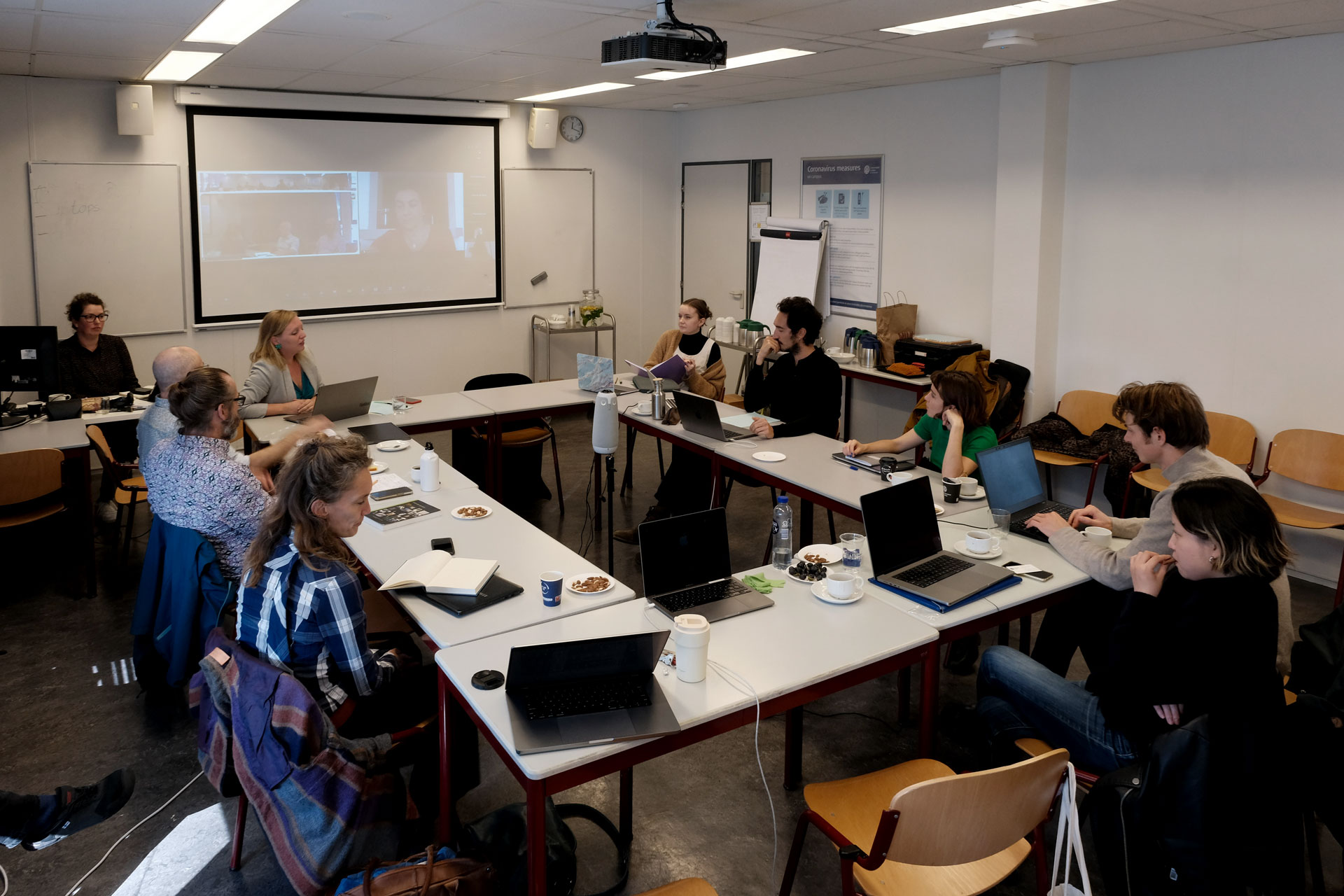
Inspired by emergent discussions in STS on experimental collaborations (Estalella and Criado 2018; Lippert and Mewes 2021) and making and doing (Downey and Zuiderent-Jerak 2021), this workshop focused on alternative co-creative research and dissemination strategies that have the potential to reach beyond the walls of academia and engage with and intervene in broader public discussions. The workshop explored diverse approaches and methodologies of critical epistemic engagements and interventions with matters of migrations, borders, and technologies by taking stock of the possibilities and challenges offered by our contemporary media landscapes.
Our quest for multi-modal collaborations and interventions had the primary scope to widening the reach of STS scholarship across fields, to facilitate knowledge production with societal partners such as media makers, artists and engagement with wider expert and non-expert publics. Thereby we aimed to explicitly discuss with invited experts specific experiences, visions and challenges of knowledge production based on multi-modal interventions, including (the lack of) acceptance of multi-modality as non-conformist scientific practice and publishing strategies. We asked the workshop participants to share their experiences and think with us about best practices in multimodal collaborations, publishing and dissemination. Or, if they were currently working on a fitting multimodal project, to join us as authors that would contribute to a special issue and a future Making and Doing session.
Origin and background of the workshop
We, the organisers of the workshop, Nina, Pedro and Ildikó, started our collaboration as the co-convenors of the STS-MIGTEC Panel “Multi-modal interventions: the promises and challenges of creative and collaborative engagements with matters of migration, borders & technology” which took place in the annual STS-MIGTEC Workshop in February 2022. In the call for papers we asked: “How do multiple forms of engagements with border and migration control regimes imagine and make a difference on the matters they critically engage with?” This panel aimed to explore diverse approaches and methodologies of critical epistemic engagements and interventions with matters of migrations, borders, and technologies. With multi-modal interventions, we referred to research engaging with creative audio-visual utterances focussed on the themes outlined above, which span across the broader spectrum of media genres and formats (including e.g. installations, documentary, film, podcasts, soundscapes, memes, graphic novels, mapping exercises). We invited epistemic interventions that could have the potential to make a difference in practice, including in the living conditions of migrants, as well as conceptual reflections on such collaborative, and researcher- or practitioner-led initiatives. We then encouraged the submission of a diversity of approaches with regards to the purposes and ambitions of interventions, but also with regards to their methodologies and formats. The workshop on “Researching and publishing strategies for multimodal interventions in the field of migration, borders and security technologies” was the natural follow up to this panel.
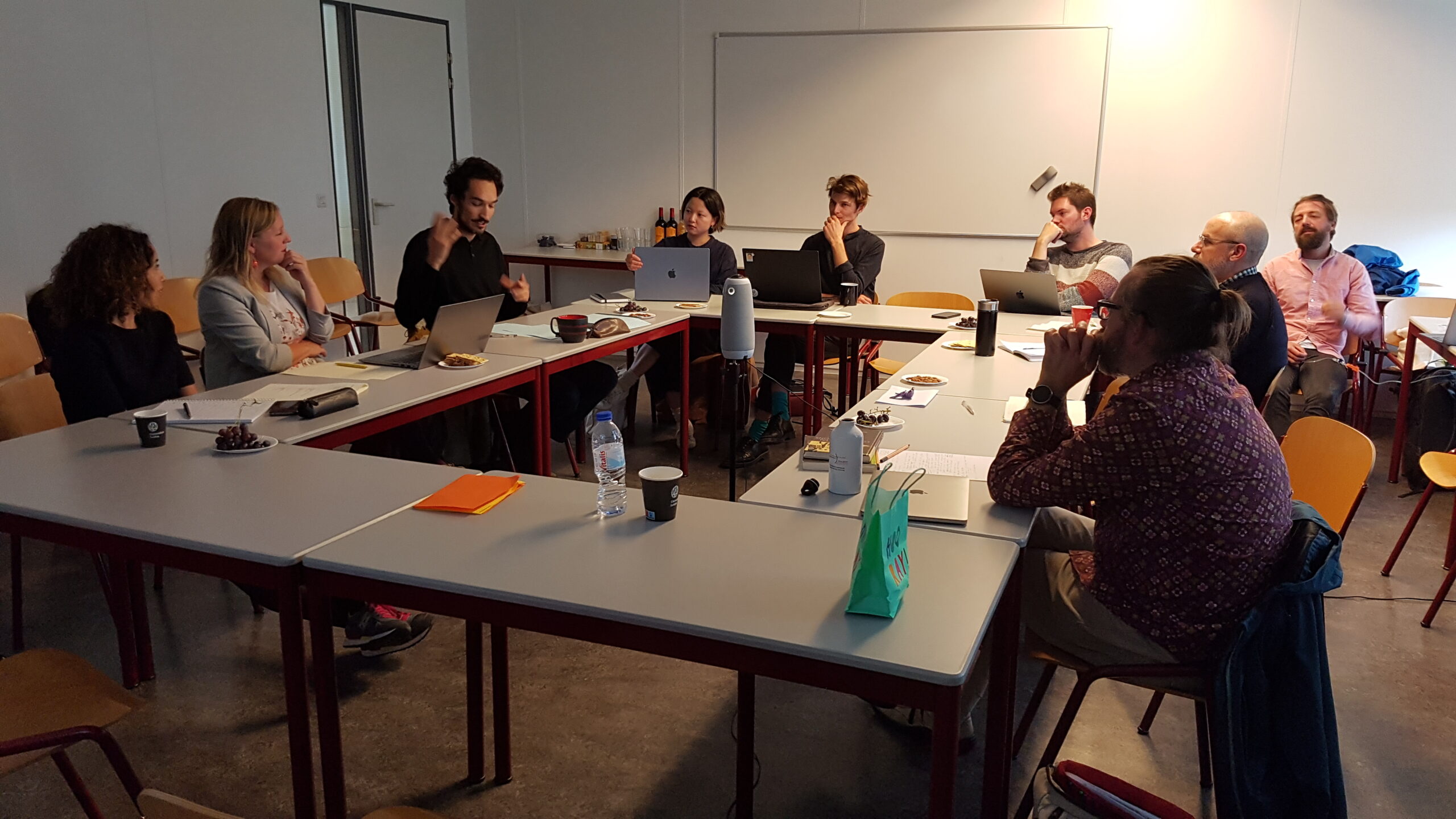
Workshop contributions
The first day of the workshop started with an introduction round and with four kick-off provocations by Ildikó Plájás, Mark Westmoreland, Francesco Ragazzi and Fredy Mora Gámez. In these provocations we were first introduced to filmic montage as a generous and generative method to analyse technologies of vision used in governing people and their movement across European borders. After watching some examples of possible ways of intertwining written arguments and experimental film clips (see also Plájás 2023), Mark Westmoreland explored the ways in which the multimodal agenda resonates with current day’s collaborative and decolonizing efforts (Westmoreland 2022). Francesco Ragazzi then reflected upon the relation between process and product and argued that processes could not be dissociated from the scientific products if we are to address and legitimate the diverse spaces for multimodal research. Finally, Fredy Mora Gámez presented a case study based on the project “Bring a chair into the room” in which he explored the possible ways in which a crafted chair could mobilise alternative narratives of reparation in Colombia and Southern Europe.
The second day of the workshop offered two panels and one final roundtable.
The first Panel with the title “Multimodal inventions in Migration, Borders and Technology” touched upon a wide range of topics and concerns around borders and mobility and challenged the traditional, text-based engagements of our disciplines. Shirley van der Maarel introduced us to asylum centres in Italy, and explored the uses of camera and anthropological film to stay true to the concerns and challenges of lived realities on the ground . Amade M’charek explored the “method of trailing” in Tunisia to understand the colonial and extractivist histories underpinning the so-called “refugee crises” while also moving across different sites and research contexts. We learned about the extensive surveillance infrastructure in a Palestinian neighbourhood in the occupied East Jerusalem and discussed a multi-modal mapping as a way to simultaneously attend to the fractures and contradictions of such surveillance infrastructures from Rune Saugmann and Ariel Cain. And finally, with Irene Gutiérrezwe explored participatory forms of ethnography among migrant women in Ceuta, Italy, and discussed the affordances and shortcomings of informed consent forms.
The second panel of the day, Multimodal interventions in collaborations, writing and publishing featured Ruben van de Ven and Cyan Bae, Jonathan Austin and Andrew Gilbert and introduced innovative methods and engagements ranging from diagramming, graphic ethnography all the way to designing objects for theoretical interventions. We were first introduced to time-based diagramming, developed to trace the unfolding imaginaries of computer vision technologies in the field of security by Ruben van de Ven, Ildikó Plájás and Cyan Bae. Jonathan Austin then prompted us to considered the ways in which concrete material-technological construction of functional objects or infrastructures can be used in critical social sciences – including but far beyond STS – in taking the active risk of designing, fabricating, and disseminating black (technological) boxes, rather than being content with deconstructing such black boxes. We ended the panel with reflecting on the affordances of sequential art (comics, graphic novels, etc.) for research practice and social intervention together with Andrew Gilbert and discussed how multimodal formats offer fresh ways to document events and practices, communicate research findings, evoke emotions and other complex phenomena, and engage multiple audiences towards diverse social and political ends.
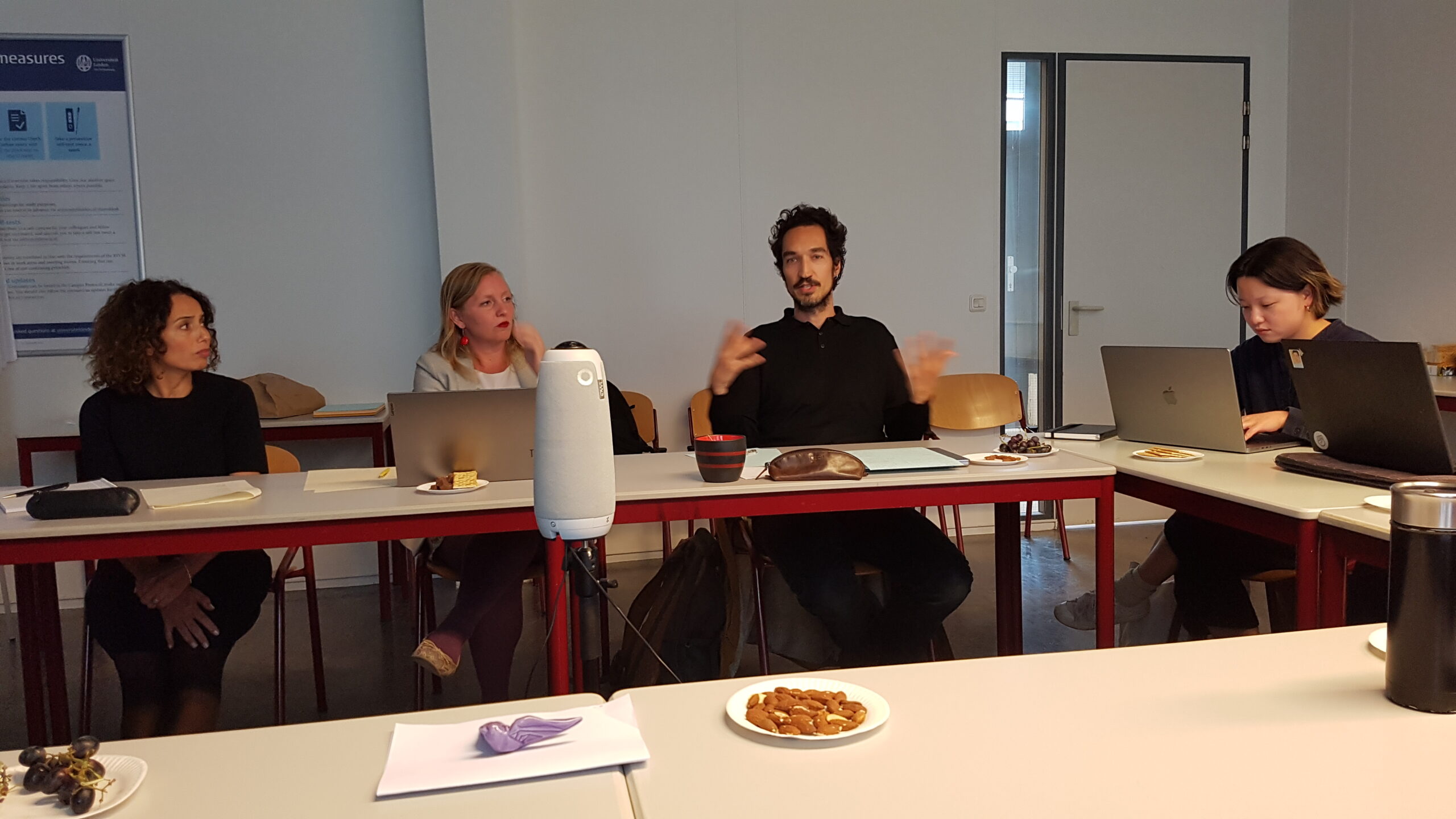
The final roundtable, open to the public, titled “Multimodal Futures?” came back to the main ideas and puzzles discussed throughout the workshop. Nina’s introduction was followed by Laura Forlano’s intervention in which she shared her experience of collaborating with multimedia artists and makers in particular, to create a robotic sculpture that used data from her own insulin pump. Pedro F. Neto then presented several multimodal experiments, namely documentary film and installation done outside of his academic work, and discussed how the “leftover empirical materials” which did not make it into the edits of his award winning films, eventually contributed to his experimental installations expanding on his scientific reflections.
These two final interventions raised questions about reflexivity and interrogated how multimodal experiments can contribute to expanding scholarship. The workshop led to the collective commitment to follow up to these inspiring experiences of sharing and discussing possibilities of researching and publishing on multi-modality on the matters at stake of this workshop, e.g. migration, borders and technology. At the time of writing this report, a special issue project as well as a making-and-doing session are under preparation to sensitise wider audiences for the possibilities of multi-modality, broaden the interested community and pioneering with processes of collective and reflexive knowledge production on multi-modal formats for publishing.
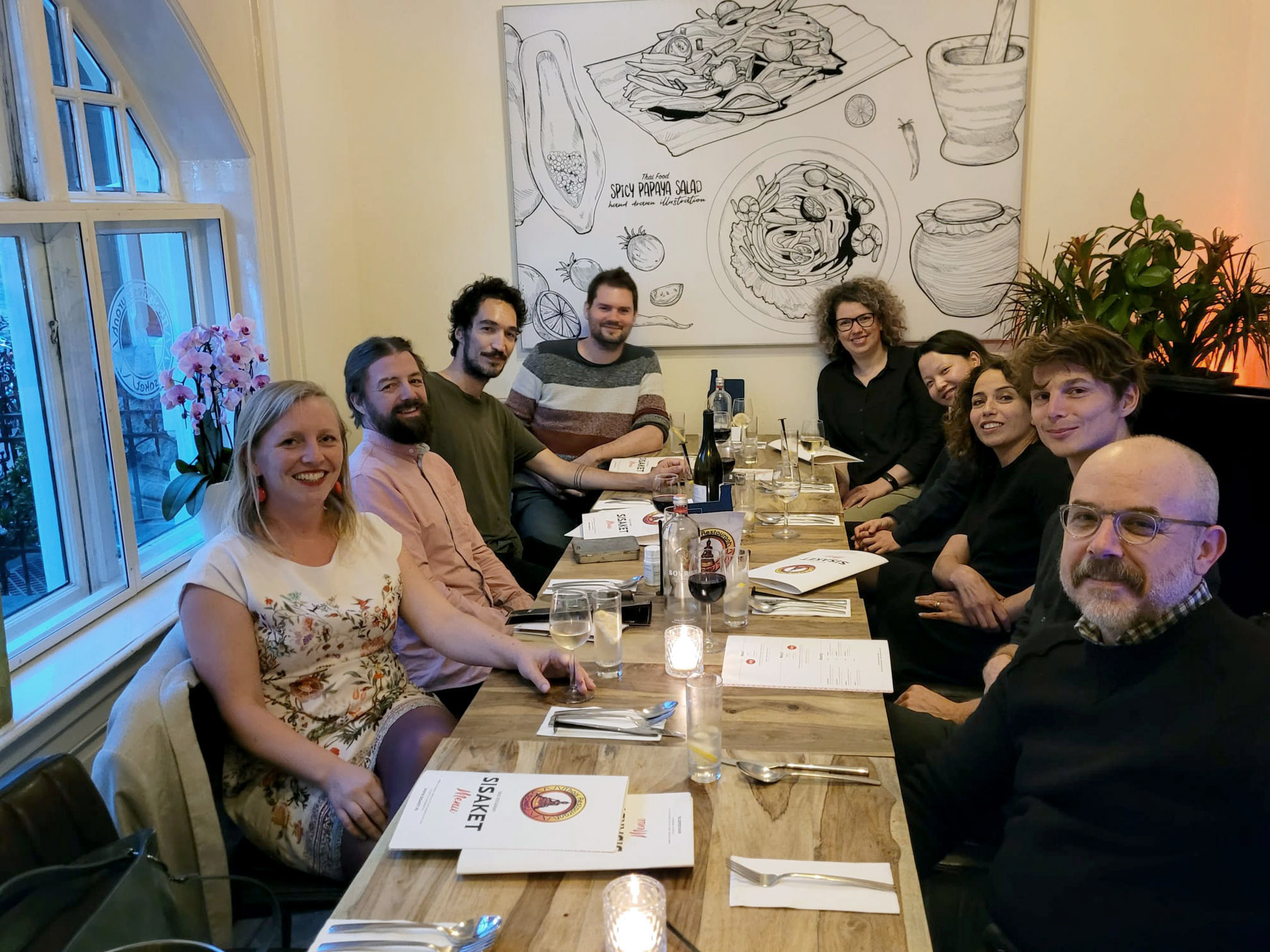
Proceedings
The generous financial support of the EASST Funds made possible to bring together artists and scholars, to establish and expand communication networks and collaborations, and to pave the way for a second, follow up workshop which will result in a multimodal Special Issue in one of the leading STS or interdisciplinary journals and a Making and Doing session.
1 STS-MIGTEC is an independent network of scholars at the intersection of STS and critical migration, security and border studies.
2 ReCNTR is an interdisciplinary research centre focused on promoting multimodal and audiovisual research methods in social science and the humanities at Leiden University.
References
Amelung, N. 2021. Politics of (Non)Belonging: Enacting Imaginaries of Affected Publics Through Forensic Genetic Technologies. In: Racism and Racial Surveillance. Modernity Matters. Edited By S. Khan, N. A. Can, H. Machado. London: Routledge.
Amelung, N.; Gianolla, C.; Sousa R., Joana; Solovova, O. 2021. Material Politics of Citizenship: Connecting Migrations With Science and Technology Studies. London: Routledge.
Ballestero, A. and B.R. Winthereik 2021. Experimenting with Ethnography. A Companion to Analysis. Duke University Press.
Estalella, A. and T.S. Criado 2018. Experimental Collaborations: Ethnography through Fieldwork Devices, Berghahn Books.
Downey, G. and Zuiderent-Jerak, T. eds., 2021. Making & Doing: Activating STS through Knowledge Expression and Travel. MIT Press.
Forlano, Laura, & Smith, Stephanie. 2018. Critique as Collaboration in Design Anthropology. Journal of Business Anthropology, 7(2).
Lippert, I. and Mewes, J. S. 2021. Data, Methods and Writing: Methodographies of STS Ethnographic Collaboration in Practice, Science & Technology Studies, 34(3), pp. 2–16.
Neto, Pedro F. & R. Falcão (directors). YOON, 2021. 84 min. (trailer: https://www.youtube.com/watch?v=FUDIxT6m0Ho&t=30s) ISAN: 0000-0006-EFD1-0000-E-0000-0000-W
Neto, Pedro. F. & Baptista, J. A. (directors). 2021. Abyssal, 12min.
Neto, Pedro F. & R. Falcão. 2022. Routiers’ transformational trajectories of waste, from Portugal to Senegal. In: Border Crossings in and out of Europe, ebookIS, CEI-ISCTE-IUL, pp.87-105 ISBN: 978-989-781-719-9.
Neto, Pedro F. & Korkmaz 2022. (directors). Guadiana in Four Movements, 12min. (trailer: https://vimeo.com/741066105)
Nolas, M. & C. Varvantakis 2018. ‘entanglements that matter’ In: entanglements: experiments in multimodal ethnography 1(1): 1-4.
Plájás, I. Z., Ragazzi, F. and van de Ven, R. 2020. From Consensus to Diffraction. On Generative Frictions in Mapping Computer Vision Technologies in the Field of Security. Anthrovision, Vol. 8.1. Online since 31 July 2022.
Plájás, I. Z. (2023). Interfaces: on the relationality of vision, face and race in practices of identification. A multimodal intervention. Social Studies of Science, 0(0): 1-26.
Westmoreland, M. 2022. Multimodality: Reshaping Anthropology, Annual Review of Anthropology 51:173–94.